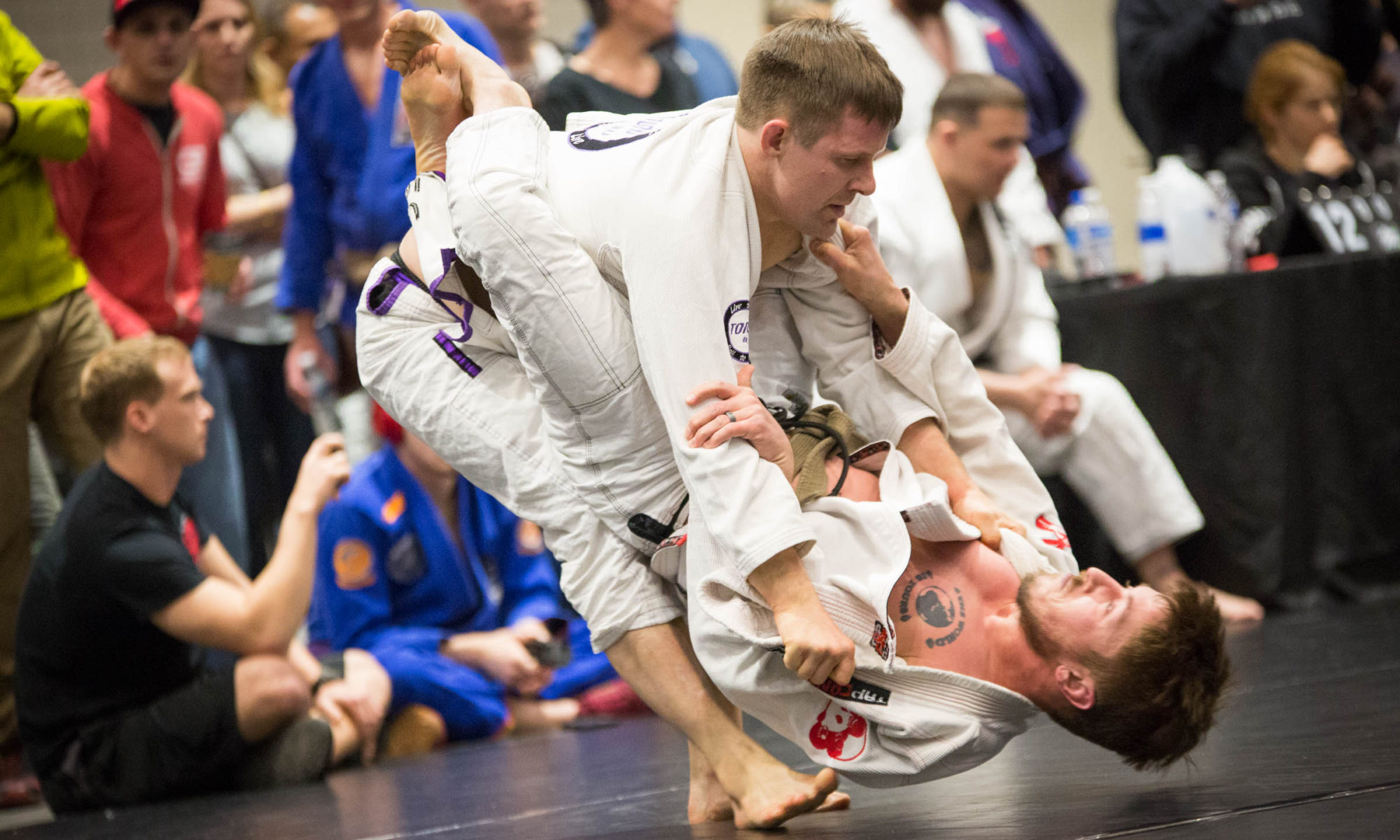Surfing and martial arts share much. Top-level practitioners, for one thing: a healthy percentage of the Brazilian black belts I met grew up surfing, and professional surfers like Joel Tudor have taken up the gi with great enthusiasm and success.
You can see why, since both arts require adaptability and grace in the face of powerful opposing forces. The ocean’s tougher than all of us.
Another point of commonality: the experience that surfers (and psychologists) call “flow,” that optimal experience of life. Jiu-jitsu people use the term “flow” sometimes, too, but it’s more typical in the circles I run in to hear it called “mushin,” a Japanese word that roughly means “empty mind.”
There’s really no experience like it. I got it when I was doing competitive debate during high school and college, and haven’t had it since — until jiujitsu.
Putting this type of experience into words is a weighty task. I won’t make too strenuous an attempt, because it seems contrary to the very notion of an empty, flexible mind. I’m merely going to describe how it seems to me during a perfect sparring or competition experience.
They come for you and grab you, hard. You off-balance them and then you’re on top and they don’t know what happened. Things are slow, slower than life ever is. They try to grip you again, and you watch their hand come open as it reaches for you. It could take what seems like a second or what seems like a year, and you know where on your body it will land precisely.
But you’re not there any more. The hand’s efforts are useless. Then you let them grip you, just to show them they shouldn’t grab you there, and suddenly they’re tapping.
I don’t use the word sublime a lot, but not much else qualifies. The world is gone. Life is right here.
***
We often talk about martial arts as a practice, and other disciplines from sporting to religious to philosophical use that same terminology. The end results you’re aiming for with these disciplines differ widely. It’s the practice that brings focus, clarity, and the ability to experience what we call flow. It took me years to get there in both debate and jiu-jitsu, and I’m certainly not there every session. But, as with yoga or music or whatever your art of choice is, it’s the practice that matters.
Buddhism talks about emptying the mind in the context of meditation. This is a painting by the Chinese artist Gao Qipei:
You’ll notice that a poem is inscribed at the top of the painting (about which there’s another fascinating story, involving Bertolt Brecht, but that’s for another time).
The poem is about using a quiet mind to tell the difference between good men and evil ones. Here’s a rough translation:
“The deep clarity of the empty mind
corresponds to the vast emptiness of the sky.
All these malicious and evil men
can be seen in the stillness of contemplation.”
There is a difference between using mental clarity in evaluating someone’s personal ethics and in knowing intimately whether the kimura is available, but how you get there is the same: slow progress over time, culminating in the acuity to know instinctively what to do when the time is right.
Besides, every discipline has different aims, some of which exist beyond good and evil. To paraphrase Ash from the Evil Dead films: “Good, bad. I’m the guy with the heel hooks.”
The idea of mushin is divergent from daily life experience for most of us. We work day jobs that require constant attention. Whether you’re sitting in an office or waiting tables, your mind is active and thinking about minute details. If the world slows down in these spots, it’s not because of the flow, it’s because the quotidian is making you watch the clock.
What does this all mean? It means that the New Year is almost here, and with it, I’m thinking my annual thoughts about what to improve during the next trip around the sun.
I always play the Lawrence Arms song “100 Resolutions” at this time of the year, because the chorus is something to aspire to. You can see why it’d make me think of mushin:
This year I’ll try not to think too much.
This year I’ll try to stand up for myself.
This year I’ll live like I’ve never lived before.
This is my year, for sure.
This year I’ll practice more. Not just jiu-jitsu, but all the things that get me away from clock-watching and toward quiet. This year I’ll flow more and force things less, and I’m not talking about while rolling. The world will always make waves in my life, but I will learn to surf them better.
These are all things I wish for you, too. Happy New Year, everyone.

